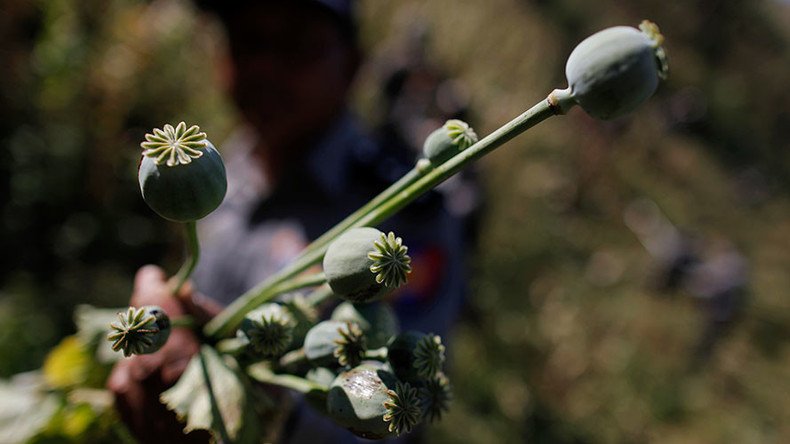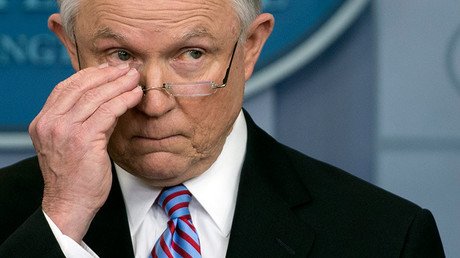US offers to help fund Mexico’s heroin eradication efforts ‒ report

As its opioid epidemic grows into a full-blown crisis, the US has offered to work with Mexico to eradicate its poppy fields. Additionally, President Donald Trump has agreed to provide nearly $500 million for states to deal with the opioid epidemic.
The US offered to send money to help Mexico in their fight against heroin, William Brownfield of International Narcotics and Law Enforcement Affairs (INL), part of the State Department, told Reuters in an interview published Friday.
"We would be prepared to support [opium eradication efforts] should we reach a basic agreement in terms of how they would do more and better eradication in the future," Brownfield said.
"That is on the table, but I don't want you to conclude that it's a done deal, because we still have to work through the details," he added.
DEA orders opioid production cut by 25% in 2017 https://t.co/aGw8oOl3zkpic.twitter.com/bzV6qZ2vSa
— RT America (@RT_America) October 5, 2016
In 2015, opioids were responsible for 33,000 deaths in the US, according to the most recent data from the US Centers for Disease Control and Prevention (CDC). That’s 91 people killed every single day from an opioid-related overdose. Of those overdoses, heroin was responsible for 12,989 deaths, an increase of 21 percent from the previous year.
Much of that heroin is coming across the border from Mexico. An anonymous source told Reuters that 32,000 hectares of opium poppy fields were under cultivation in Mexico in 2016, up from 28,000 in 2015 and triple the area from 2012.
The opioid epidemic was a central issue for Trump during the 2016 election. However, as president, his administration has often taken a harsher stance on Mexico, such as threatening to end the North American Free Trade Agreement and force Mexico to pay to build a wall on the United States’ southern border.
Last week, Attorney General Jeff Sessions announced new reforms and guidelines for immigration enforcement, with a focus on intercepting drugs and drug traffickers, whom he said “flood our country with drugs and leave death and violence in their wake.”
“We will deploy a multifaceted approach in these efforts: we are going to interdict your drugs on the way in, your money on the way out, and investigate and prosecute your trafficking networks to the fullest extent of the law.”
The US could stop drug production before it even got to the border by providing funding to Mexico for vehicles or helicopter flights that would help them access the rugged mountain areas where the poppy is being grown, Brownfield told Reuters.
"If it's a matter of having other sorts of equipment, we could talk about support in terms of equipment," he said.
Brownfield did not specify how much money the United States was looking to provide, but he said the US is willing to help certain units involved in eradication.
Despite political differences, the US and Mexico are making progress in the fight against heroin.
"Our cooperation with the Mexican government on the heroin challenge is in fact good, and it is better than it has ever been in the past," Brownfield said.
On Wednesday, Trump also agreed to provide nearly $485 million to states for prevention and treatment programs aimed at confronting the opioid epidemic. The grant money was part of bipartisan legislation approved by Congress under then-President Barack Obama.
In a letter sent to the governors of each state, Health and Human Services Secretary Tom Price called the opioid epidemic “one of our top three Departmental priorities.”
“We cannot continue to lose our nation’s citizens to addiction. Through a sustained focus on people, patients, and partnerships, I am confident that together we can turn the tide on this public health crisis,” Price wrote.













